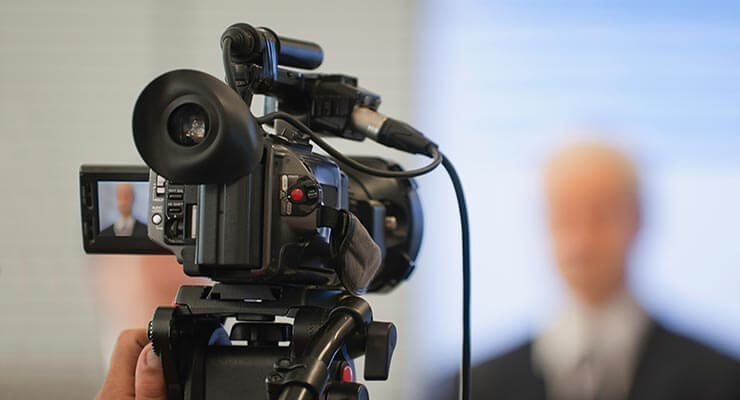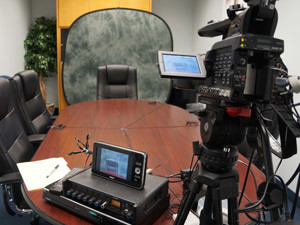Advanced Legal Videography for Depositions.
Advanced Legal Videography for Depositions.
Blog Article
The Duty of Lawful Videography in Depositions and Tests
Lawful videography has become a vital tool in both depositions and trials, offering a complex strategy to documenting witness testimonies. By catching not only the spoken word yet additionally the nuances of non-verbal interaction, this tool boosts the trustworthiness of testimonies and maintains important proof for future procedures. As lawyers progressively acknowledge its value, it prompts a much deeper exam of exactly how these aesthetic documents can influence juror assumptions and trial results. What ramifications might these developments hold for the future of lawful method?
Value of Legal Videography
Lawful videography plays a crucial function in the documentation and discussion of depositions and trials. This customized field incorporates technological skills with lawful knowledge to develop a trustworthy document of process that can significantly influence instance end results. The visual facet of legal videography improves the understanding of witness statement, enabling jurors and judges to observe not only the spoken words but likewise the disposition, emotions, and body movement of the witnesses.

The significance of lawful videography expands past the court room; it additionally plays a vital role in protecting evidence for future recommendation, whether for appeals or further lawful action. Its combination right into the legal process is vital for guaranteeing a fair and accurate representation of the facts, inevitably adding to the search of justice.

Process of Legal Videography
While catching the subtleties of depositions and trials, the process of legal videography involves numerous vital steps that ensure high-quality, exact recordings. At first, a professional legal videographer prepares by examining the situation materials and recognizing the particular needs of the deposition or test. This prep work includes familiarizing themselves with the participants and the context, which helps in capturing important details.
On the day of the recording, the videographer sets up the needed equipment, which commonly includes high-def electronic cameras, microphones, and appropriate lighting. Making sure optimal angles and sound high quality is critical, as it straight impacts the effectiveness of the recording. The videographer connects with attorneys and individuals to establish procedures, guaranteeing that every person recognizes the recording procedure.
Throughout the deposition or trial, the videographer meticulously videotapes the procedures, paying very close attention to both spoken and non-verbal signs. legal videography. This consists of capturing the temperament and reactions of witnesses and attorneys. After the session wraps up, the videographer might modify the footage for clarity and compliance with lawful criteria, generating a final product that precisely reflects the procedures for future reference and use in legal contexts
Benefits in Depositions
The incorporation of videography in depositions supplies countless advantages that enhance the general procedure of gathering evidence. One primary benefit is the capability to record witness statements with visual and auditory fidelity, providing an extra accurate representation of the witness's attitude, tone, and body movement. This multidimensional technique enables lawyers and juries to analyze reliability a lot more efficiently than traditional written transcripts alone.
Furthermore, videographed depositions serve as an effective device for protecting testimony. Should a witness ended up being unavailable for test, their videotaped deposition can be played in court, guaranteeing that their proof stays available and pertinent. This facet dramatically lowers the threat of shedding critical information that could affect situation results.
Furthermore, the use of lawful videography advertises far better prep work for attorneys. Assessing video footage allows legal teams to analyze and refine their approaches, recognizing toughness and weak points in their cases. This primary benefit can lead to more compelling discussions in court.
Lastly, videography boosts the overall expertise of the deposition procedure, instilling confidence in clients pertaining to the thoroughness of their legal representation. By leveraging modern technology, attorneys can considerably improve the efficiency of depositions.
Effect on Tests
In lots of trials, the assimilation of videography can dramatically affect the discussion of evidence and the jury's perception. Legal videography catches witness testaments and essential proof in a dynamic layout, permitting jurors to involve with the material on multiple degrees. This visual part boosts the narration element of a test, offering context and psychological resonance that typical text-based evidence may do not have.
Moreover, video clip recordings can act as effective tools for impeachment during cross-examination. When disparities occur in between a witness's prior declarations and their courtroom statement, video clip evidence supplies an unbiased referral that can sway jurors' opinions. This immediacy and quality can strengthen the reliability of an event's narrative while all at once weakening opposing arguments.
Additionally, using videography can assist use this link simplify intricate information, making it much more easily accessible to jurors who might battle to realize intricate details presented solely with verbal testament. By combining visuals with auditory information, lawful videography can enhance retention and understanding, eventually influencing the jury's decision-making process. The impact of videography in trials expands beyond simple aesthetic appeals; it plays an essential role in shaping the legal landscape and end results.
Future Trends in Legal Videography
As we look towards the future of legal videography, a number of arising fads assure to improve its role within the court. One substantial trend is the integration of expert system (AI) in video evaluation and modifying - legal videography. AI can streamline the process of identifying essential moments in tape-recorded depositions, enabling lawyers to quickly access pertinent material, consequently boosting efficiency in case prep work
Furthermore, the rise of online fact (VIRTUAL REALITY) and see increased fact (AR) technologies is anticipated to change just how jurors experience evidence. By submersing jurors in a simulated atmosphere, these innovations can supply a much more extensive understanding of intricate scenarios, bring about even more educated deliberations.

Furthermore, the increasing demand for remote depositions, accelerated by the COVID-19 pandemic, will likely continue. Lawful videographers will certainly require to adapt to new software and systems to make sure premium recordings in online settings.
Finally, the growing focus on information safety and security will certainly require read more stringent protocols for keeping and sharing video clip evidence. As the legal landscape progresses, lawful videographers should remain abreast of these fads to maintain their significance and effectiveness in the judicial process.

Verdict
In summary, lawful videography offers a crucial function in the judicial process, boosting the honesty of depositions and trials. As technology continues to progress, lawful videography is positioned to more change its role within the legal landscape.
Report this page